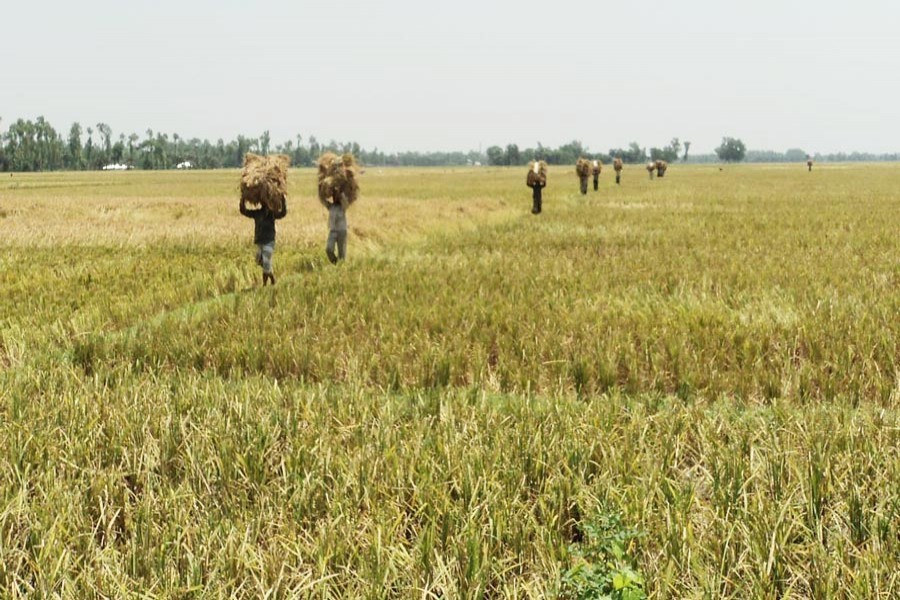Agriculture Minister Dr Muhammad Abdur Razzaque on Tuesday expressed his deep concern over lower Aman output in the ongoing season due to a drought-like situation, higher costs of diesel and frequent power load-shedding.
The next two weeks are very crucial when the Aman plants need plenty of water for required growth, he told a seminar in the capital, expressing his frustration over much lower rainfall than normal in the country during this high season.
Moreover, the cost of diesel has surged to a new high, raising the costs of supplementary irrigation, he added. "Electricity load-shedding is also affecting irrigation in many places."
Bangladesh Agricultural Research Council (BARC) organised the seminar on dissemination of a study report on projecting the demand and availability of 28 daily essentials (food crops) up to 2030 and 2050.
The minister said that the government has taken a decision to supply uninterrupted electricity from midnight to morning for ensuring smooth irrigation across the country.
He, however, assured that there will be no shortage of fertiliser until the end of this Aman season while a required quantity of fertiliser is being collected from global sources for the upcoming Boro season. "We hope to bring in the fertiliser well before the beginning of the Boro season."
Prof (retired) Dr S M Faqrul Islam of Bangabandhu Sheikh Mujibur Rahman Agricultural University led the study and presented the key findings of the six-month-long research at the seminar.
The study projected that the country would require 50.2 million tonnes of cereals, including 39.1 million tonnes of rice, 4.6 million tonnes of wheat and 5.8 million tonnes of maize, within 2030.
By 2050, the demand for cereals would reach 56.5 million tonnes, including rice 42.6 million tonnes, wheat 5.2 million tonnes and maize 8.7 million tonnes.
The study report also projected a decline in the share of cereals to our daily calorie intake to 79.55 per cent by 2030 and 77.52 per cent by 2050 from 83.14 per cent now.
The report also projected demand for spice, vegetables, fruits, oil seeds, pulses, and potato crops.
Many researchers present at the programme as well as the agriculture minister, however, criticised many of the findings, terming those suspicious.
Dr Razzaque said the present demand for wheat would not be less than 6.5 million tonnes taking into account the imports and local production of 1.0 million tonnes.
He questioned when the demand is already above 6.5 million tonnes, how then it could be 5.2 million tonnes by 2050.
Talking on the demand for maize and its current production, the minister said the minimum requirement for maize is now 7.0 million tones, which is rising amid expansion of the feed industry.
"But the report forecasts the demand at 5.7 million tonnes in 2021 and 5.8 million tonnes in 2030," the minister wondered.
He, however, appreciated the timely initiative to make a projection on the demand and supply of key essential crops for the future food security of the country.


